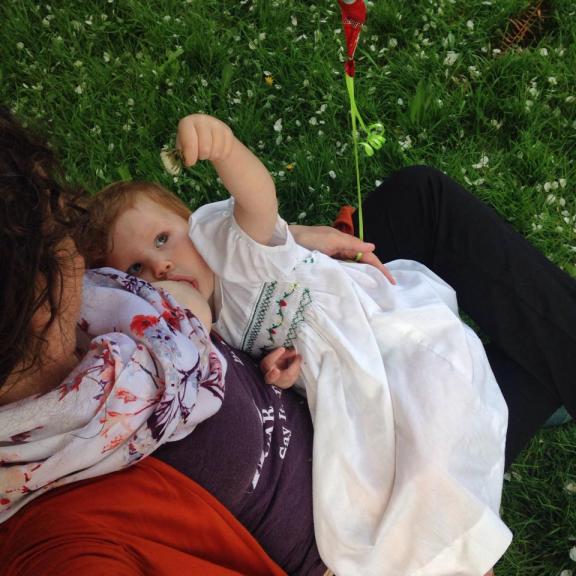by Jennie Bernstein and Jessica Martin-Weber
It probably seems obvious to anyone that has breastfed a toddler that doing so is clearly all about the mom’s desires.* What a mom gets out of breastfeeding her toddler is nothing more than a relaxing, pleasurable experience that makes her feel just like she did when she was breastfeeding her child as a newborn. In fact, it’s almost exactly the same. Breastfeeding beyond 6 weeks/6 months/12 months/18 months/6 years really is all about keeping their “baby” truly an actual baby.*
Still, some people just don’t understand. This list of 5 reasons moms continue to breastfeed their babies after the arbitrary acceptable cut-off date enforced by random strangers or other individuals such as family members and friends who aren’t actually whipping their boob out for their 3 year old “infant” to suckle may shed some clarity on the matter.
- To hold on to those baby
monthsyears. By continuing to breastfeed, her child won’t grow up and will stay an infant forever. This one is obvious. She just loves changing diapers, waking multiple times a night, and screams for communication that she is using her magic milk coming from her magic boobs to keep her child an infant. It’s just so fulfilling. After all, with no baby to baby, what would she do anyway? - She is preparing to enter American Gladiator. Or Wipe Out. Breastfeeding her toddler/preschooler is the perfect training. With all this preparation, there is no doubt she’ll be winning that cash prize.
- She’s lazy. Can’t be bothered to teach that kid to eat real food or clean up after the inevitable mess it will make eating real food. So naturally she’d rather wrestle an octopus with her boob. Oh, and the octopus still wants food to throw.
- Lack of discipline. Too much of a softy to tell her kid no, she pulls out her boob for the little tyrant any time it is demanded. There’s probably nothing she says no to, like candy, knives, or running in the street…
- Looking for attention. Because everyone knows how fun it is to have everyone you know commenting on how they think you suck at parenting and finding just one more way for others to disagree with your parenting choices is just the most. fun. ever!
- Her pleasure. That’s right, this is really what it’s all about- her own personal pleasure. Round house kicks to the head, nipple twists during gymnurstics, niplash, you name it, they’re all for her pleasure. She’s just using her child for her own selfish desires and satisfaction which is why she agrees to breastfeed a truck from time to time and has perfected controlling her reactions to getting a finger jabbed into her eye.
_________________
What would you add to your list as to reasons why moms may continue to breastfeed their toddler or preschooler?
_________________







